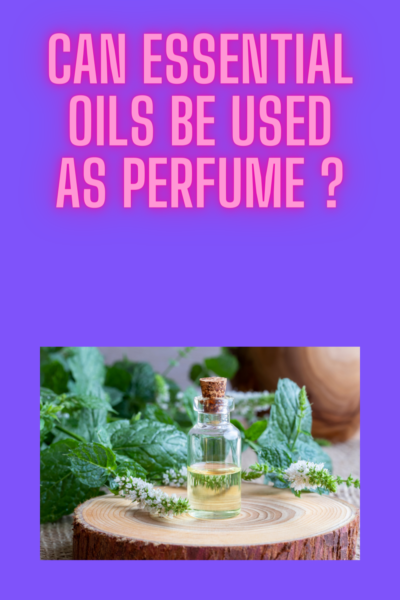Introduction
Can essential oils be used as perfume? Perfumes have been a part of human culture for centuries, captivating our senses and leaving a lasting impression. Traditionally, these fragrances have been created using a combination of synthetic compounds and natural ingredients. However, in recent years, there’s been a growing interest in more natural alternatives, and essential oils have emerged as a popular option. But can essential oils truly replace conventional perfumes? In this blog post, I’ll talk about the pros and cons of using essential oils instead of a regular perfume.
The Rise of Essential Oils
Essential oils are concentrated extracts derived from plants, capturing the natural aroma and essence of flowers, fruits, leaves, and other botanicals. They have gained popularity not only for their fragrant properties but also for their therapeutic benefits, as many essential oils are believed to have calming, energizing, or even mood-lifting effects. Essential Oils can help you with emotional wellbeing in addition to physical wellness.
Essential Oils as Perfume: Pros and Cons
Pros:
- Natural Aromas: Essential oils provide a wide array of natural scents that range from floral and citrusy to woody and earthy. This diversity allows individuals to find a scent that resonates with their personal preferences. I know I have some essential oils that I love the smell and others that I’m not a big fan of the smell. Personally, spearmint, peppermint and orange are a few of my favorite smells, whereas, tea tree and petigrain are two I really don’t like.
- Therapeutic Benefits: Many essential oils are associated with various therapeutic properties. For example, lavender is often used for relaxation, while citrus oils like bergamot can uplift mood.
- Customization: Essential oils can be blended to create unique and personalized scents, giving individuals the freedom to experiment and create a fragrance that suits their personality.
- Less Harsh Chemicals: Unlike some conventional perfumes that contain synthetic ingredients, essential oils are generally considered more natural and may be suitable for those with sensitivities to certain chemicals. This is a big one for me and many others as I have a lot of allergies and most traditional perfumes make my allergies worse. If you have an autoimmune condition conventional perfume should really be avoided.
Cons:
- Shortevity: One of the challenges with using essential oils as perfume is that they tend to evaporate relatively quickly compared to synthetic perfume compounds. This means that the scent may not last as long on the skin. I’ve noticed this quite freqently. I just apply more frequently.
- Complexity: Creating a balanced and long-lasting fragrance using essential oils requires a deeper understanding of the oils’ scent profiles and how they interact with each other. However, you can overcome this by experimenting to see what your favorite combinations are.
- Scent Variability: The aroma of essential oils can vary due to factors such as the source plant, growing conditions, and extraction methods. This can lead to inconsistencies in the scent of the perfume.
- Limited Projection: Essential oil-based perfumes might not project their scent as far or as strongly as some synthetic perfumes, which can be a drawback for those who prefer a stronger fragrance presence.
Tips for Using Essential Oils as Perfume
- Dilution: Essential oils are potent and should be diluted before application. Carrier oils like jojoba, almond, or coconut oil can be used to dilute the essential oils and make them safe for direct skin application.
- Layering: To enhance the longevity of the scent, consider layering different forms of the same essential oil. Use a scented lotion or body wash in combination with the essential oil perfume. You can also get a plain lotion and add in a few drops of essential oil.
- Experimentation: Don’t be afraid to experiment with different essential oil combinations to find a scent that you love. Start with a small amount and adjust the ratios until you achieve your desired fragrance.
- Patch Test: Before using any essential oil-based perfume on a larger area of your skin, perform a patch test to ensure you don’t experience any adverse reactions.
Conclusion
While essential oils offer a natural and often therapeutic approach to fragrance, they do come with their own set of considerations. Their relatively shorter longevity and complexity in creating a balanced scent might be challenging for some perfume enthusiasts. However, for those who appreciate a more intimate and personalized aroma, essential oils can provide a unique olfactory experience that connects you to the beauty of nature. Whether you’re seeking relaxation, invigoration, or simply a scent that resonates with you, essential oil-based perfumes offer a world of aromatic possibilities.

Did this help you? If so, I would greatly appreciate a share on Facebook, twitter, linkedin, or pinterest.
My Favorite Products (Affiliate links- if you make a purchase I may earn a small commission)
Thrive Market - healthy gluten free, sugar free and speciality online food and household products
Silk and Sonder Monthly Journals and Planners
My Portable Infrared Sauna
Self Care Journal
Martie discounted food
Olipop - healthy soda with probiotics and prebiotics
Digestion Kit
Stress Oils








